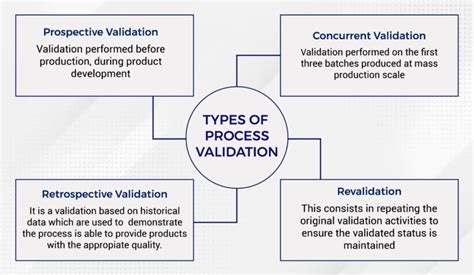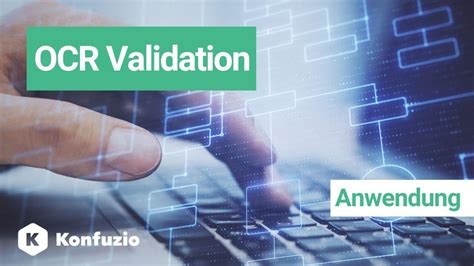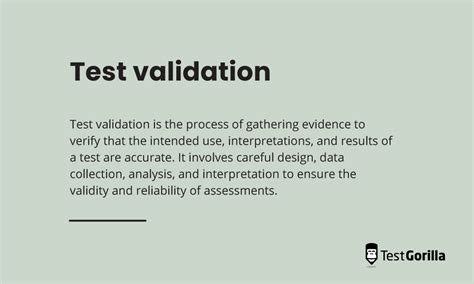Understanding Validator Meaning

The term “validator” can have different meanings depending on the context in which it is used. In general, a validator is an entity, process, or tool that verifies the validity, accuracy, or conformity of something to a set of standards, rules, or requirements. This concept is crucial across various domains, including technology, law, psychology, and more. In this article, we will delve into the different aspects of validator meaning, exploring its applications and significance in different fields.
Technical Context: Data Validation
In the realm of computer science and information technology, validators are often associated with data validation. Data validation is the process of ensuring that the data entered into a computer system is correct and consistent. Validators in this context can be algorithms, functions, or even separate programs designed to check data against a set of predefined rules. For example, when you fill out a form on a website, validators can check if your email address is in the correct format or if your password meets the required complexity standards.
| Validation Type | Description |
|---|---|
| Format Validation | Checks if the data conforms to a specific format, such as date or email address format. |
| Range Validation | Verifies if the data falls within a specified range, such as age or salary. |
| Code Validation | Checks the data against a set of predefined codes or values, such as country codes or product codes. |

Psychological and Social Context: Social Validation
In psychology and social sciences, validation refers to the process of recognizing, accepting, and confirming the thoughts, feelings, or behaviors of an individual. Social validation is about seeking and receiving approval or confirmation from others to reinforce one’s self-concept, beliefs, or actions. This type of validation can have a profound impact on a person’s self-esteem, motivation, and overall well-being. For instance, positive feedback from peers or superiors can validate an individual’s professional abilities, boosting their confidence and job satisfaction.
Legal and Regulatory Context: Compliance Validation
In legal and regulatory frameworks, validation often pertains to the process of ensuring that certain documents, transactions, or practices comply with relevant laws, regulations, or standards. For example, in the context of intellectual property, validation can refer to the examination process conducted by patent offices to verify the novelty and non-obviousness of an invention. Similarly, in financial transactions, validators can be used to ensure that deals comply with anti-money laundering (AML) and know-your-customer (KYC) regulations.
Applications and Significance of Validators

Validators play a crucial role in maintaining the integrity, reliability, and efficiency of systems, processes, and interactions across various domains. By ensuring that data, documents, or behaviors meet certain standards or requirements, validators help prevent errors, fraud, and non-compliance, thereby protecting individuals, organizations, and societies from potential harm or loss.
Key Points
- Validators are essential in technical contexts for data validation, ensuring the accuracy and consistency of data entered into computer systems.
- In psychological and social contexts, validation is vital for recognizing and accepting individual thoughts, feelings, and behaviors, influencing self-concept and well-being.
- In legal and regulatory contexts, validation is critical for ensuring compliance with laws, regulations, and standards, preventing non-compliance and potential legal or financial repercussions.
- Validators contribute to the reliability, efficiency, and integrity of systems and processes, preventing errors, fraud, and misuse.
- The concept of validation underscores the importance of standards, rules, and requirements in guiding behaviors, practices, and interactions across different domains.
Future Perspectives and Challenges
As technology advances and societal norms evolve, the role and applications of validators will continue to expand and adapt. In the digital age, with the proliferation of data and online transactions, the need for robust validation mechanisms to prevent cybercrime, ensure data privacy, and maintain trust in digital systems will become even more critical. Moreover, the psychological and social aspects of validation will remain essential in fostering inclusive, supportive environments that promote mental health and well-being.
What is the primary function of a validator in a technical context?
+The primary function of a validator in a technical context is to verify the validity, accuracy, and consistency of data entered into a computer system, ensuring it meets predefined rules and standards.
How does social validation impact an individual's self-concept and behaviors?
+Social validation can significantly impact an individual's self-concept and behaviors by reinforcing their thoughts, feelings, and actions, thereby influencing their self-esteem, motivation, and overall well-being.
Why is compliance validation important in legal and regulatory contexts?
+Compliance validation is crucial in legal and regulatory contexts as it ensures that documents, transactions, and practices adhere to relevant laws, regulations, and standards, preventing non-compliance and potential legal or financial repercussions.
Meta Description: Discover the multifaceted role of validators across technical, psychological, and legal contexts, and understand their significance in ensuring data integrity, social well-being, and regulatory compliance.



